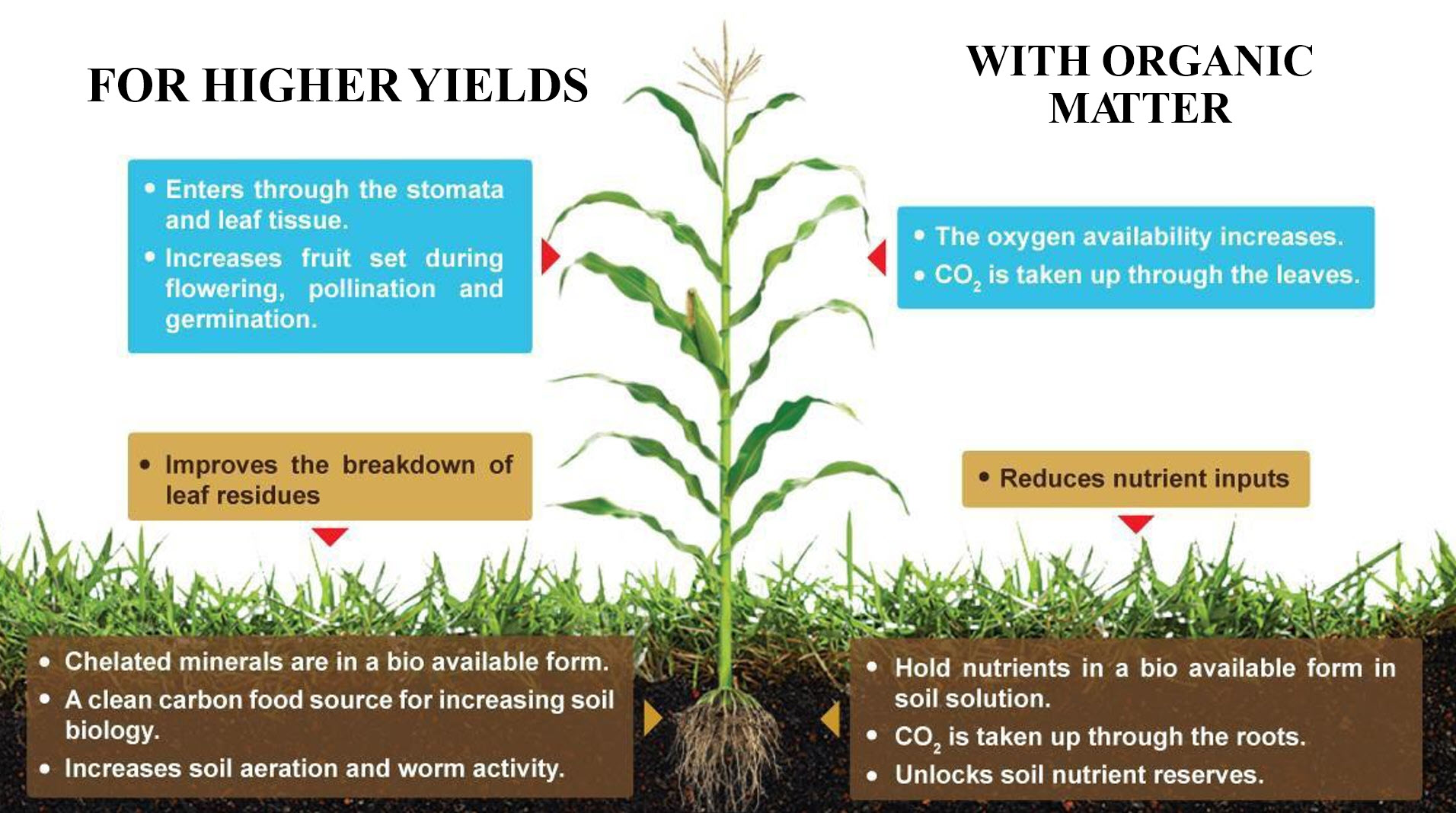Description

- MicrobeBio® Rhizo Activator™– is an all-natural and one hundred percent organic granular fertilizer that exclusively stimulates plant root growth. Once MicrobeBio® Rhizo Activator™ is applied to the soil, millions of beneficial bacteria and microbes begin to make their way to the plant root zone to develop and form a fully functional extended network of fine filaments that covers over seven hundred times more soil area. With the increase in plant root mass, the plant can then reach more of the beneficial nutrients and water that would have otherwise been unavailable without having used the Rhizo Activator. Rhizo Activator will strengthen the entire plant’s root system, allowing the plant to grow stronger, bigger, and more vigorous while generating a higher yield and better protection against pests, disease, and unfavorable environmental conditions.
- This granular bio-fertilizer not only ensures the intensive absorption of available bio-stimulants but also helps to combat nutrient deterioration in nearby water sources. Rather than quickly dissolving in water, it breaks down slowly in response to acids produced by plant growth, while gradually releasing nitrogen embedded in organic matter.
- This process ensures the intensive absorption of nutrients and bio-stimulants such as humic and fulvic acid in addition to mineral elements. These work simultaneously to stimulate microbial activity throughout the growing season, regardless of the crop or condition of the soil. The result is a reduction in groundwater leaching and runoff of excess nutrients. Ultimately, this fertilizer is integral to an environmentally-friendly agricultural operations plan which minimizes nutrient pollution.
BENEFITS:
- Intensifies water retention
- Slowly releases organic nutrients for accelerated root absorption
- Stimulates plant growth by increasing microbial colony
- Provides a healthy bio-available source of food and energy for soil microbes
- Encourages plant growth and increases yield
- Remediates salinity and heavy metal contamination in soils
- Regulates pH levels in acid or alkaline conditions
- Increases BRIX levels
- Enhances organic matter and Carbon source
- Augments chlorophyll content
- Builds upon natural defenses
- Improves soil structure
WHAT ARE ESSENTIAL NUTRIENT FOR PLANT GROWTH?
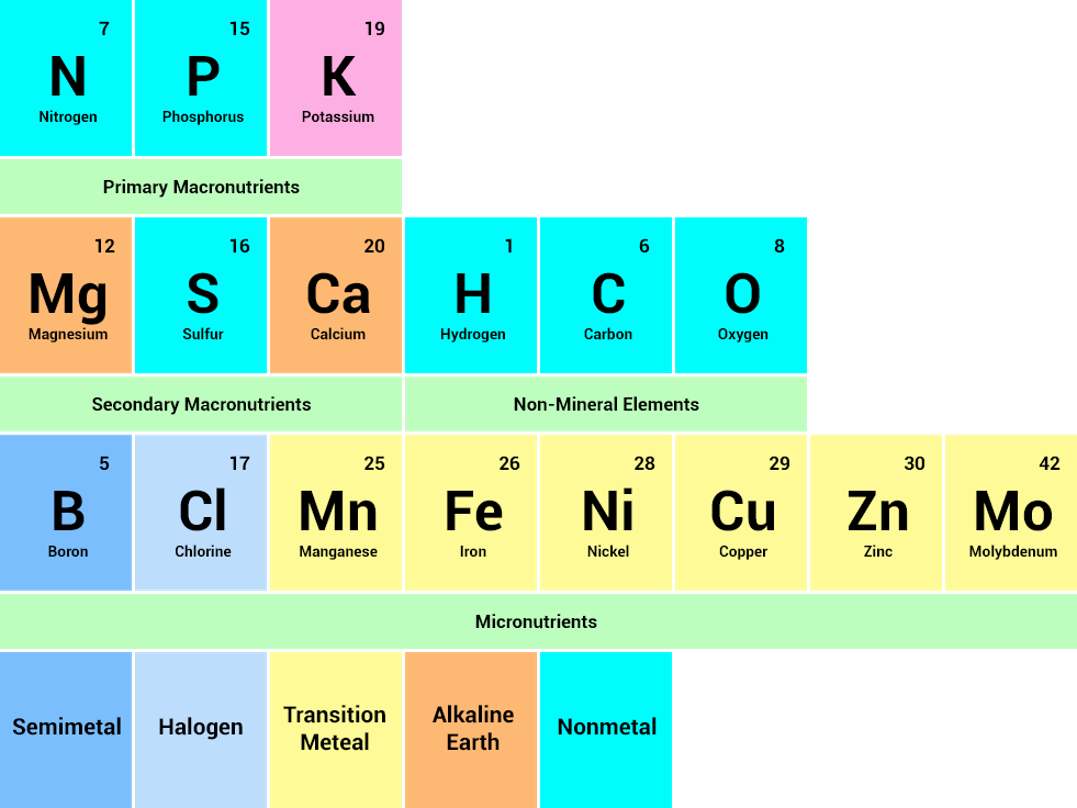
PRIMARY MACRONUTRIENTS
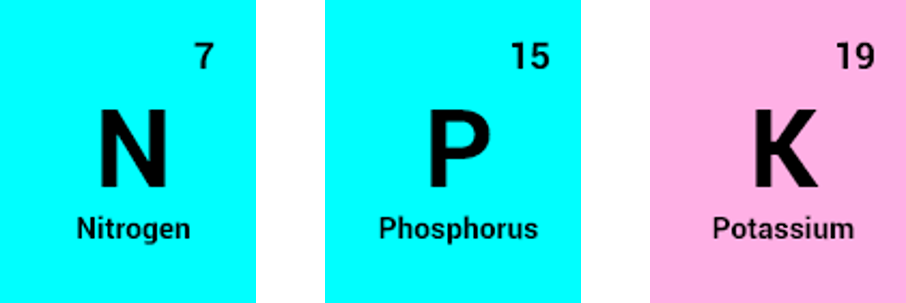
N (NITROGEN)
- Nitrogen (N) is important for plants and other living things. It plays a crucial role in plants and is responsible for chlorophyll synthesis and the process needed to make protein. Most nitrogen is unavailable to plants because it is in a gas state in the atmosphere.
- MicrobeBio® helps provide more nitrogen for plants through Nitrogen Fixation. This is the process of taking unusable nitrogen from the air and converting it into organic compounds that plants and organisms can use.

P (PHOSPHORUS)
- Phosphorus is one of the main nutrients plants need to grow healthy. Plants get phosphorus from the soil by absorbing P from the soil as primary and secondary orthophosphates. It is essential plants get enough phosphorus because it is important for many of their production cycles including root growth, converting the sun’s energy into usable energy, and making other key functions. A lack of phosphorus is detrimental to the plant and will cause it to not absorb nutrients.
- MicrobeBio® helps plants receive the amount of phosphorus they need to thrive. Our product accomplishes this through phosphate solubilization which is the process of solubilizing bound phosphate in the soil and making it available for uptake by plants.

K (POTASSIUM)
- Potassium is another essential nutrient that plants need in order to be healthy. It is vital to photosynthesis, protein synthesis, and many other plant functions. Potassium builds cellulose and helps translocate sugars and starches. It also has a major impact on the plant’s size, shape, color, taste, and other quality-related measurements. Having enough potassium can also increase root growth and increase drought resistance.
- MicrobeBio® helps plants receive as much potassium as they need. The microorganisms in MicrobeBio® solubilize potassium, which is the process of breaking down potassium making is available to plants, and making it easier for plants to absorb it.

SECONDARY MACRONUTRIENTS
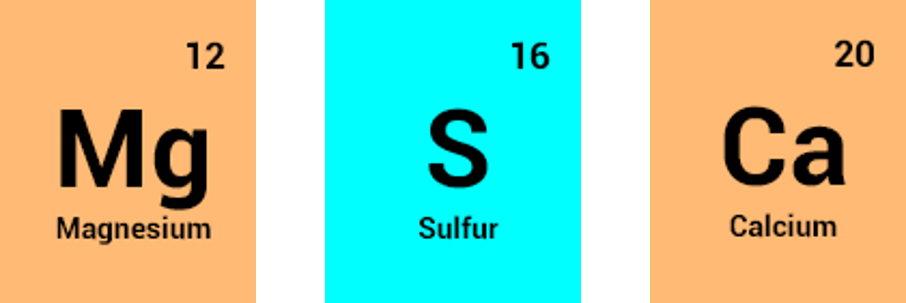
Mg (MAGNESIUM)
- Magnesium is important to a plant’s health. Magnesium is in every molecule of chlorophyll which means it is actively involved in photosynthesis. It also aids in phosphate metabolism, plant respiration, and the activation of many enzyme systems. Magnesium is needed to capture the sun’s energy for growth and production through photosynthesis.
- Like many other nutrients, most magnesium is not available for plants. Microbes take this unusable magnesium and convert it into a compound that plants can absorb. MicrobeBio® microbes will ensure plants get the right amount of magnesium that they need.

S (SULFUR)
Sulfur is an important nutrient that plants receive through the soil, but can also enter plant leaves as dioxide. Sulfur is needed for the synthesis of certain amino acids and proteins, photosynthesis, seed production, and nitrogen fixation, and is also useful for winter crop hardiness. However, most sulfur in the soil is tied up in organic matter and cannot be absorbed by plants. This leads to the problem of plants not having enough sulfur. MicrobeBio®’s microbes help break up this matter and convert the sulfur in the organic matter into a compound that is easy for plants to absorb and use.

Ca (CALCIUM)
Calcium is an important nutrient for plants because it is essential for their structure. Much like we need calcium for strong bones, plants need calcium to develop strong cell walls. This enables plants to stand upright and be better protected. Calcium also helps with cellular signaling which is a biological process critical to a plant’s healthy development. A deficiency in calcium can have negative effects on plant growth. Most calcium compounds found in the soil are insoluble and plants can’t use them. MicrobeBio®’s microbes help by taking the insoluble calcium and turning it into a soluble compound that plants can use.

MICRONUTRIENTS
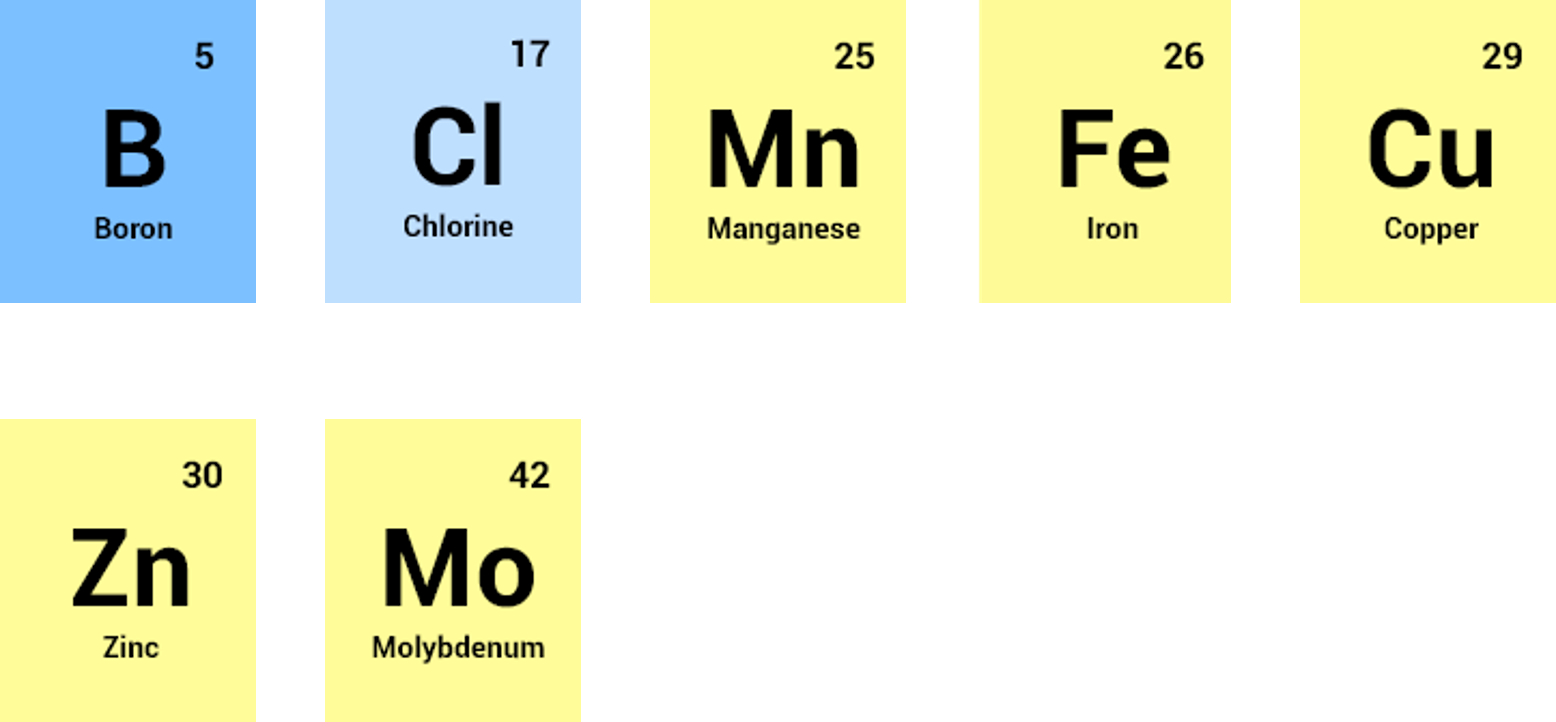
ACHIEVE FULL BALANCED NUTRITION
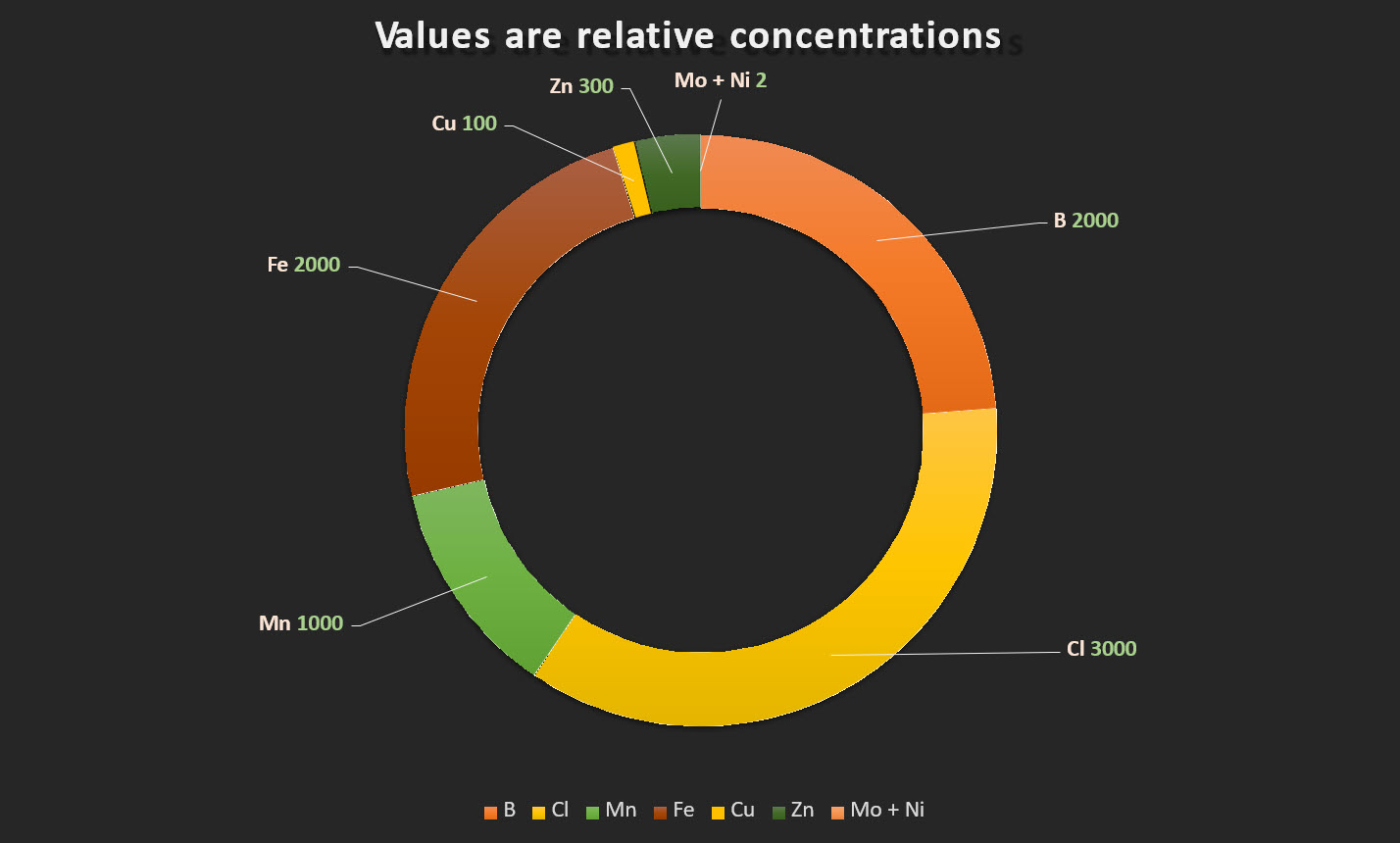
B (BORON)
Boron is vital to plant health because it plays a key role in forming and strengthening cell walls. Boron also has an impact on the uptake of potassium and phosphorus. Boron is also one of the nutrients that usually have the biggest deficiency in plants. Deficiency in Boron affects the cell walls and reproductive organs of plants. Severe deficiency can lead to stunted growth and death of growth tissue. MicrobeBio®’s microbes go into the soil and any insoluble Boron is broken down and made into a soluble matter that plants can absorb.

Cl (CHLORINE)
Boron is vital to plant health because it plays a key role in forming and strengthening cell walls. Boron also has an impact on the uptake of potassium and phosphorus. Boron is also one of the nutrients that usually have the biggest deficiency in plants. Deficiency in Boron affects the cell walls and reproductive organs of plants. Severe deficiency can lead to stunted growth and death of growth tissue. MicrobeBio®’s microbes go into the soil and any insoluble Boron is broken down and made into a soluble matter that plants can absorb.

Mn (MANGANESE)
Manganese is used in plants as a major factor in various systems including photosynthesis, respiration, and nitrogen assimilation. It is also involved in the process of pollen tube growth, pollen germination, and resistance to root pathogens. Deficiency in Manganese can stunt growth, cause yellow leaves and cause sunken spots to appear. MicrobeBio® helps break down Manganese in the soil, making it available for plants to take in.

Fe (IRON)
Iron is essential for plant growth and food production and is a key nutrient needed for energy transfer, nitrogen reduction, fixation, and lignin formation. Plants also need iron in order to move oxygen through their system and keep their leaves green. A deficiency in iron can cause yellow leaves with green veins also known as chlorosis. MicrobeBio®’s microbes help plants receive the nutrients needed by getting iron from the soil (sourced from water or fertilizer) and making it accessible to plants.

Ni (Nickel)
- Nickel (Ni) was added to the list of essential plant nutrients late in the 20th century. Plants absorb Ni as the divalent cat ion Ni2+. It is required in very small amounts, with the critical level appearing to be about 0.1 parts per million. Furthermore, Nickel is necessary for the biosynthesis of the hydrogenase, carbon monoxide dehydrogenase, and of factor F430, found in a number of genera of bacteria.
- No Ni deficiencies have been observed under crop-growing conditions, but in crop research settings, argriculture scientists have reproduced deficiency symptoms such as chlorosis of young leaves and dead meristematic tissue.
- Nickel is a component of the urease enzyme and is, therefore, necessary for the conversion of urea to ammonia (NH3) in plant tissue, making it important in plant nitrogen (N) metabolism.
- MicrobeBio® contains pieces of Four microbial enzymes are known to require nickel: hydrogenase, methyl coenzyme M reductase, carbon monoxide dehydrogenase, and urease. Recent biochemical and molecular biological experiments have provided clear evidence for the existence of multiple auxiliary genes that facilitate nickel incorporation into urease and hydrogenase.

Cu (COPPER)
Copper is used to activating enzymes in plants that are involved in lignin synthesis and it is also essential for many other enzyme systems. Copper is used in photosynthesis and also serves to intensify flavor and color in vegetables and color in flowers. Deficiency in Copper can cause new leaves to grow smaller, lose their sheen and eventually wilt. MicrobeBio®’s microbes help provide copper to plants by finding and creating copper compounds that are usable by plants.

Zn (ZINC)
Zinc is used to activate enzymes that are responsible for the synthesis of certain proteins. It is also used in the conversion of starches to sugars, the formation of chlorophyll and some carbohydrates, to help withstand cold temperatures and helps in the formation of auxins which help with growth regulation and stem elongation. Deficiency in Zinc leads to chlorosis and new leaves are often cupped upward or distorted. MicrobeBio® helps plants get the amount of Zinc they need by breaking down organic matter that contains Zinc and making it available for plants to use.

Mo (MOLYBDENUM)
Molybdenum is an important nutrient that is used in two enzymes that convert nitrate into nitrite and then into ammonia before it is used to synthesize amino acids throughout the plant. Plants also use Molybdenum to convert inorganic phosphorus into organic forms and by symbiotic nitrogen fixing bacteria in legumes to fix atmospheric nitrogen. MicrobeBio® helps by turning Molybdenum into a soluble form that plants can use.

NON – MINERAL ELEMENTS

H (HYDROGEN)
Hydrogen is an important compound for plants and it one of three that make up a majority of the plant. Hydrogen is needed in order to complete biochemical reactions. Hydrogen is mostly derived from water which means most hydrogen that a plant comes into contact with should be soluble so the plant can use it right away.

C (CARBON)
- Carbon is a crucial compound needed for plant growth and is one of three compounds that make up the majority of plant mass. Carbon is needed in every living and plants are no exception. Plants take CO2 from the air and use the carbon from it for energy. This energy is then used to build essential biological compounds such as carbohydrates and proteins.
- MicrobeBio®’s microbes help build carbon in the soil through carbon sequestration, which is the process of taking CO2 from the air and converting it into a solid state for long-term storage. This creates more organic matter and carbon in the soil which causes microbes to begin a mineralization process and transition all carbon sources into plant-available fertilization such as nitrate nitrogen.

O (OXYGEN)
Oxygen is an important compound needed in plants and is one of three compounds that make up the majority of plant mass. Oxygen is responsible for cellular respiration in plants. Plants get oxygen by breaking down CO2 during photosynthesis and releasing the majority of it as a by-product while keeping a small portion for future energy. MicrobeBio® helps increase the amount of oxygen available to plants through carbon sequestration, which stores CO2 in the soil until it is needed.

ELEMENT GROUPS

B: an element whose properties are intermediate between those of metals and solid non-metals or semiconductors.

Mg, Ca: occupies group occupying Group IIA (2) of the periodic table. They are reactive, electropositive, and divalent metals, and form basic oxides which react with water to form comparatively insoluble hydroxides.

Cl: an element occupies group VIIA (17) of the periodic table. They reactive non-metallic elements form strongly acidic compounds with hydrogen from which simple salts can be made.

N, P, S, H, C, O: An element or substance that is not a metal.

Mn, Fe, Ni, Cu, Zn, Cu: Any of the set of metallic elements occupying a central block (Groups IVB– VIII, IB, and IIB, or 4–12) in the periodic table. Chemically they show variable valency and a strong tendency to form coordination compounds, and many of their compounds are colored.
